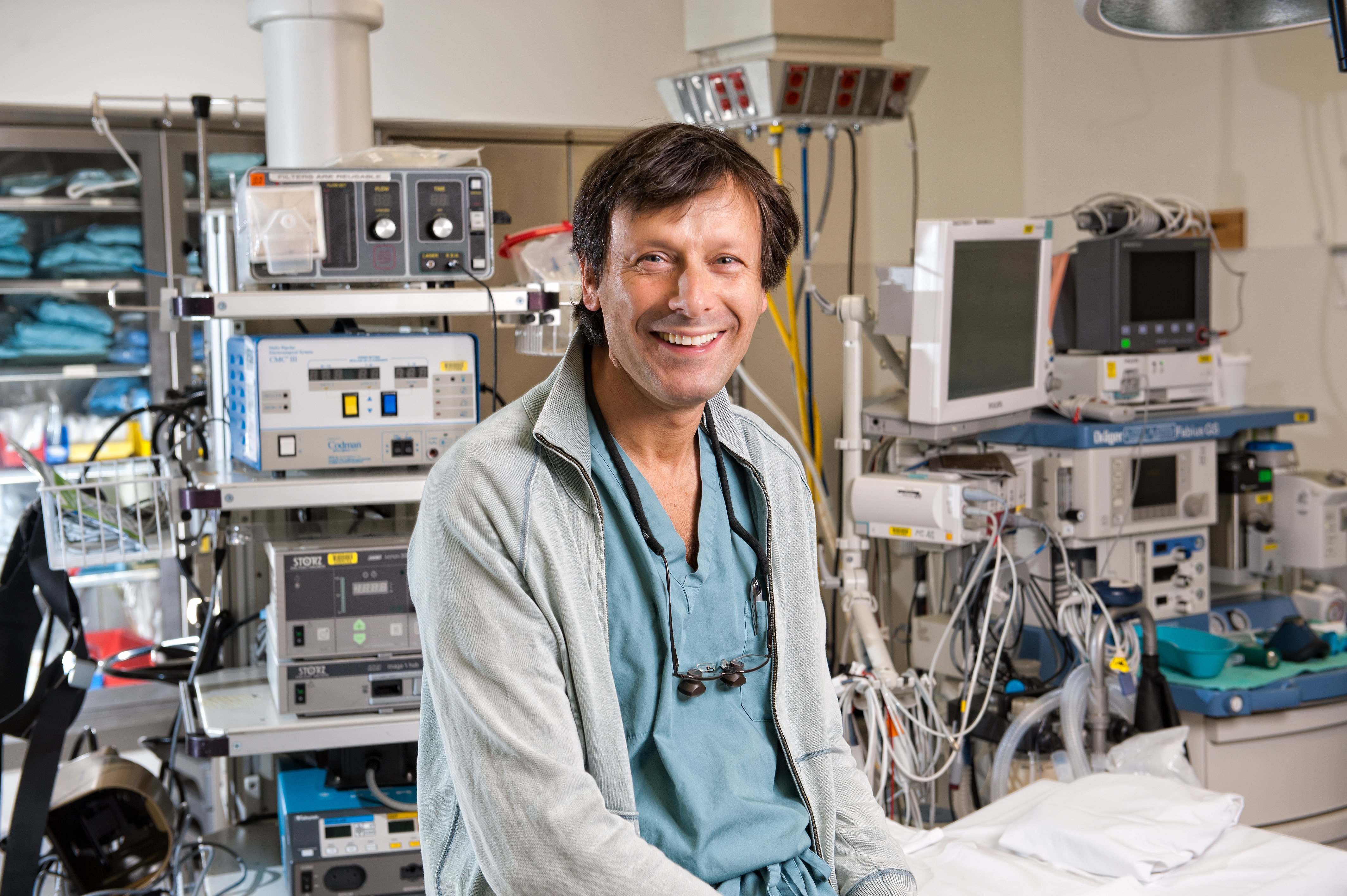
James Shapiro is leading two clinical trials that could make stem cell transplantation widely available to diabetes patients around the globe.
James Shapiro is leading two clinical trials that could make stem cell transplantation widely available to diabetes patients around the globe. Using laboratory-synthesized stem cells from a human embryo in lieu of islet cells harvested from an organ donor, he hopes to increase the number of people who can be treated, while potentially reducing the need for anti-rejection drugs in transplantation.
A second trial will assess the best way to deliver the cells to patients by investigating what he calls "the deviceless method." The projects are possible thanks to a $600,000 boost from Canada's Stem Cell Network.
"The Stem Cell Network is a big key that unlocks the door for us to be able to do these trials," said Shapiro, professor of surgery and Canada Research Chair in Transplantation Surgery and Regenerative Medicine. "It's a fantastic opportunity for Canada to lead the world stage in stem cells and regenerative medicine. It's an incredible opportunity that sets us ahead of the rest of the world."
Shapiro is an Alberta Diabetes Institute member and well-known for his leading role in the development of the Edmonton Protocol-the practice of transplanting pancreatic islet cells from donors to treat Type 1 diabetes, helping patients become insulin-independent. His team has performed more than 600 islet transplants, and more than 2,000 patients have been treated internationally since the procedure was first successful nearly 20 years ago.
The human cells needed for the islet-cell transplantation are dependent on organ donations, making it difficult to obtain a sufficient supply. For patients lucky enough to receive the islets, aggressive anti-rejection drugs are also necessary, which can be hard on the body and have a host of unpleasant side-effects.
In Shapiro's view, the way forward is in the use of laboratory-generated cells during the transplantation procedure rather than islet cells.
Synthesizing cells from a human embryo
Since 2001, Shapiro and his team have worked in partnership with a U.S. company called ViaCyte to develop technology that allows them to synthesize cells, called PEC-01 and PEC-02, from a human embryo.
"People always assumed in the past that because it's embryonic stem cell treatment we're going to have to kill a large number of embryos in order to get the number of cells needed to treat people with diabetes," he said. "That's actually not the case. All of the work that we've done has come from a single human embryo that was discarded on day five from an in vitro fertilization clinic. From that one embryo has come this cell product that can be continually and indefinitely expanded. Millions and millions of patients could potentially benefit, all from one cell."
The largest of his projects will investigate whether or not patients could have a transplant, using the PEC-01 cells, without needing anti-rejection drugs.
"The impact of it would be huge. If we could supply enough of the stem cells that we have access to now, it has the capacity to treat everyone in the world with all forms of diabetes. It still needs to be optimized, but the first of the human trials that we are involved in appears to be promising."
New avenues for regenerative medicine
Developing this technique to treat diabetes is only one of the possible avenues of stem cell research according to Shapiro. He believes that this technology could eventually use a patient's own cells instead of the embryonic cells to custom-build stem cells tailored to individuals.
"The idea would be to take a patient's own cells, like a cheek cell or a muscle cell, turn it back to the same kind of embryonic stem cell that we've used for the pancreas protocols, and then direct those cells back into what you need. Once we can use the patient's own cells, then the patient won't reject them."
"Understanding how to develop the cells you need is really the future of regenerative medicine. So there are lots of exciting things happening in other areas in parallel with what's happening in diabetes."